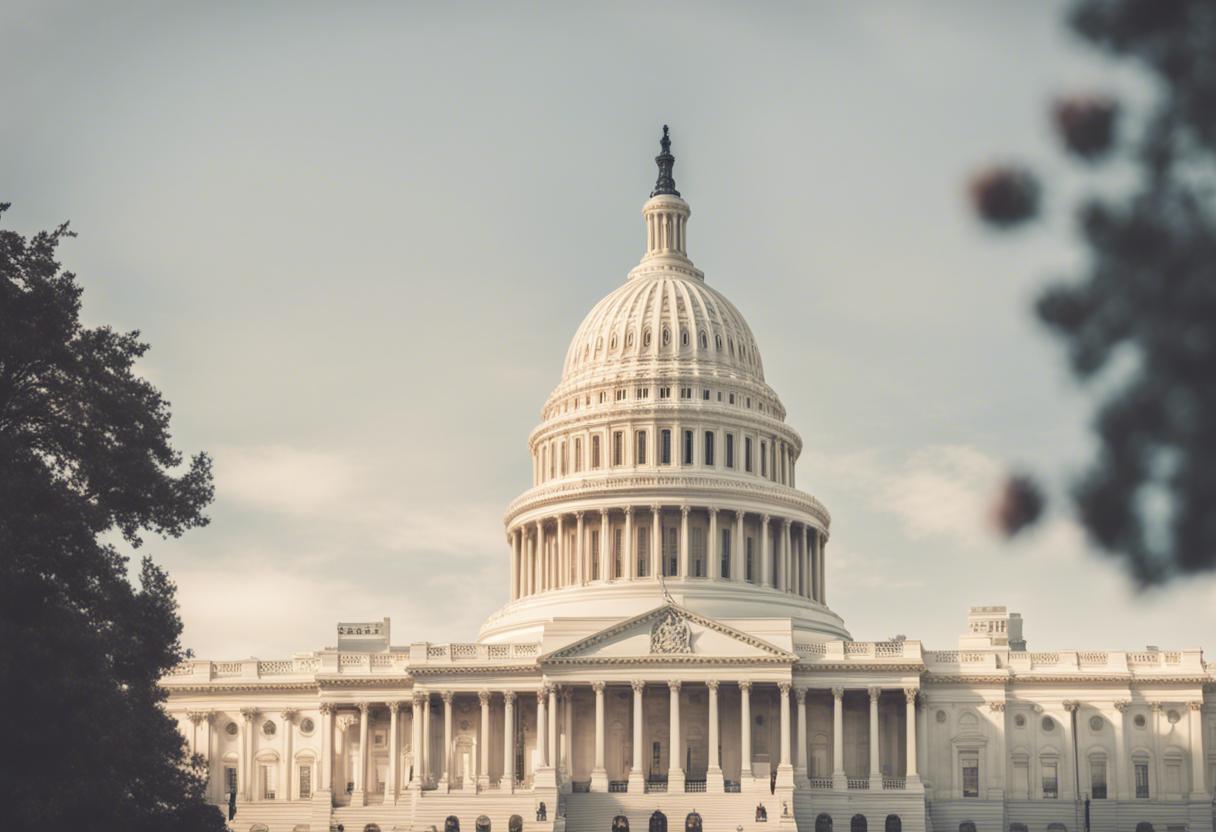Although Kamala Harris, the current US vice-president, is seen as the leading contender for the Democratic Party’s presidential candidacy, her stance on several major policy areas remains ambiguous, despite her long career in politics. Harris’s political tenure originated when she was appointed district attorney of San Francisco in 2003, later serving as attorney-general for California, before being voted into the US Senate in 2017. She launched an unsuccessful presidential bid before becoming Joe Biden’s vice-presidential candidate in 2020. Since then, she has dedicated her time to backing Biden’s policies instead of voicing her own.
Here are her views on five important policy subjects:
Foreign Policy
This is one area where Harris has given her support to Biden but has also strived to establish her own policy. As vice-president, her representation of the US and Biden in key global leader meetings has become more frequent, including the Munich Security Conference and recent Ukraine peace summit in Switzerland.
Yet, Harris has begun to stray from Biden’s point of view, especially with her remarks on the Israel-Hamas conflict in Gaza. In March, she recommended an “urgent ceasefire” due to the vast scale of hardship. This strongly contrasts with Biden, a firm Israel supporter, who backed Prime Minister Netanyahu’s war efforts despite a cool rapport.
Economics
One of the main goals of the Biden government has been to control soaring prices following the pandemic. Harris has strongly endorsed the president’s attempts to curb inflation and stated this weekend that reducing daily expenses like petrol is a primary focus. Harris and Biden are set to meet Netanyahu during his Washington visit this week where he will address the Congress.
Harris has actively promoted Biden’s historic legislation for increasing investment in infrastructure and hastening the transition to renewable energy. While serving as vice-president, she has directed her attention towards the so-called care economy, striving to increase accessibility to affordable childcare and aid for the elderly.
Prior to ascending to the vice-president position, Harris initiated housing-related actions in the Senate, such as advocating a scheme to offer refundable tax credits to tenants who spend over 30% of their gross income on rent. Furthermore, she supported tax credits for individuals earning under $100,000 and proposed an increase in tax rates for wealthy Americans in order to increase teachers’ salaries.
Despite her strong criticism of Donald Trump’s vow to implement universal tariffs if he were re-elected, citing potential damage to consumers, she has rejected the label of a “protectionist Democrat”. Nevertheless, she has stood against former trade agreements, such as the Trans-Pacific Partnership under former president Barack Obama, due to the absence of adequate environmental safeguards.
With regards to abortion, Harris has been a long-standing advocate for reproductive rights. Following the US Supreme Court’s decision in 2022 to repeal Roe v Wade, she emerged as the leading voice in the Biden administration, calling upon Congress to ensure women’s access to abortion services nationwide by enacting new legislation.
Abortion was a paramount issue for Democrats during the 2022 midterm and subsequent off-year elections. While Biden, an 81-year-old Catholic man who once supported abortion limitations, was viewed as an uncomfortable spokesperson for the topic, Harris, potentially the first female president, could be a more fitting ambassador for the issue come election day.
In terms of law and order, Harris served as a prosecutor for many years before becoming a senator. Her hard-line stance on crime as a public lawyer attracted negative attention from some progressive activists when she initially ran for president in 2020. However, her perspectives on policing, law enforcement, and race-related issues have evolved, and she has become progressively more left-leaning, in alignment with many in the Democratic Party.
During her time as a senator and presidential nominee, Harris advocated for the legalisation of marijuana and the reform of criminal justice, supporting measures to decrease the population of nonviolent offenders in prison.
Following the fatal incident involving George Floyd and the subsequent Black Lives Matter rallies in 2020, she was instrumental in proposing reforms that sought to simplify proceedings against law enforcement officials and curb police malpractice.
Harris’s tenure as vice-president has been overshadowed by the early handover of immigration responsibilities by Biden. This particular decision caused her to be singled out for one of the administration’s most significant political shortcomings, notably the influx of migrants at the US-Mexico border.
She initially fumbled media interviews on the issue and received wide-ranging criticism, especially from her political allies, for not touring the border until months into her mandate.
However, the criticism has somewhat abated recently and Harris showed support for a security agreement at the border which was favoured by members of both parties. However, this was subsequently hindered by Trump, who was hesitant to concede any political advancement to the White House during election season. The measure would have provided massive funding to employ more border security and asylum officials, and would have enforced a shutdown of the US-Mexico border if crossing numbers reached a seven-day average of 5,000 or spiked to 8,500 in one day. – All rights reserved, The Financial Times Limited 2024.

